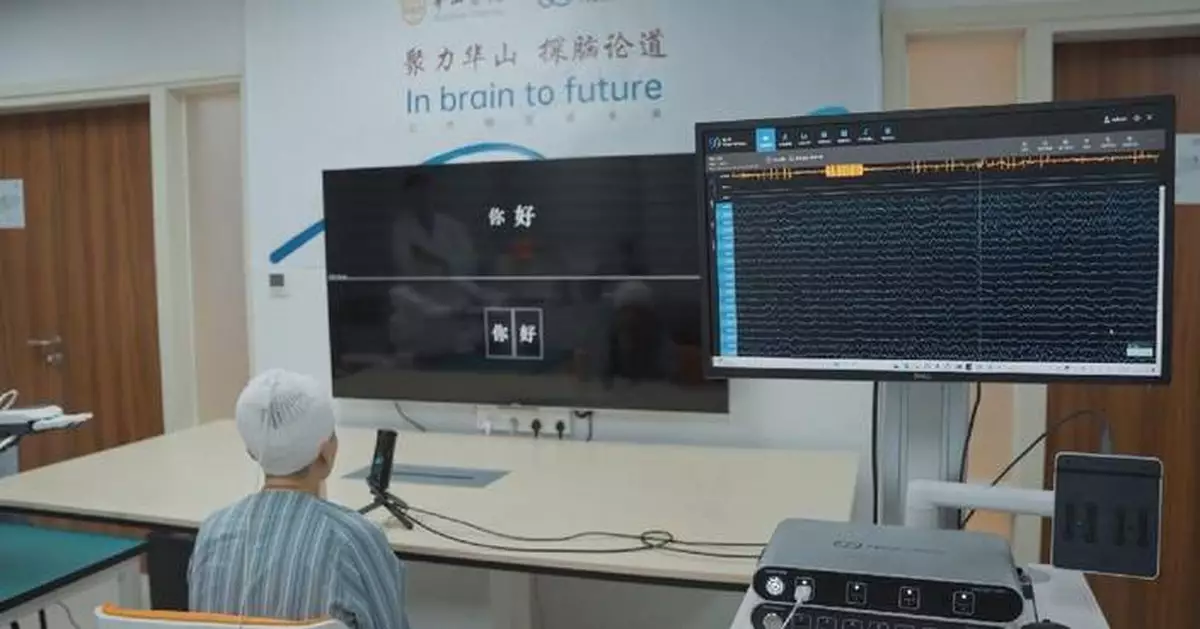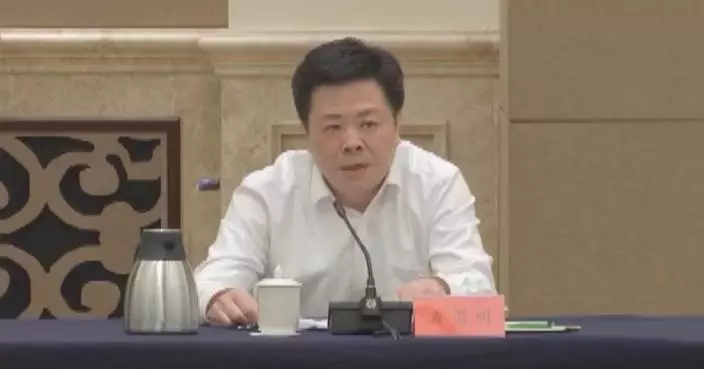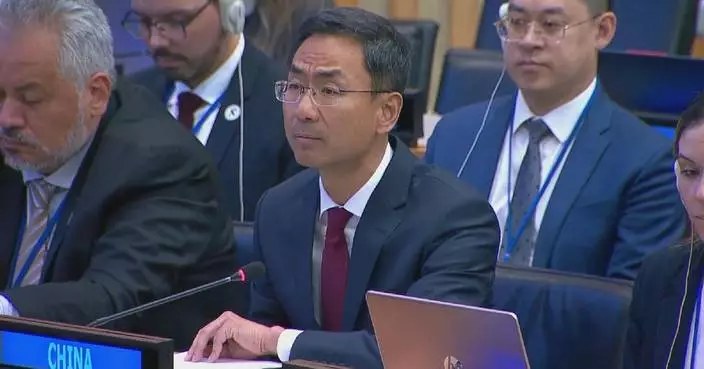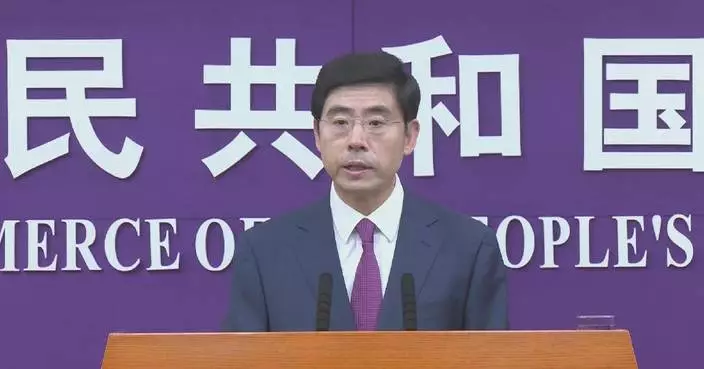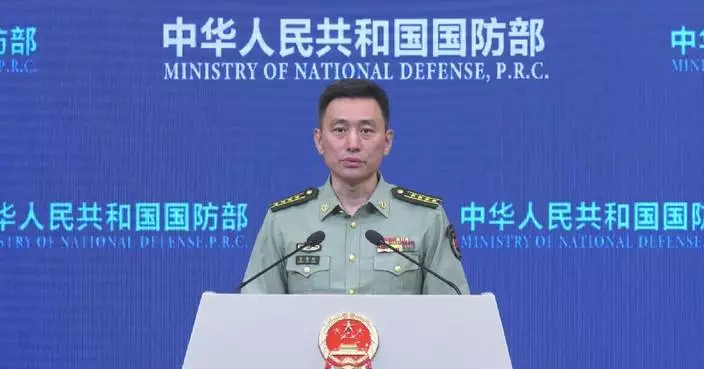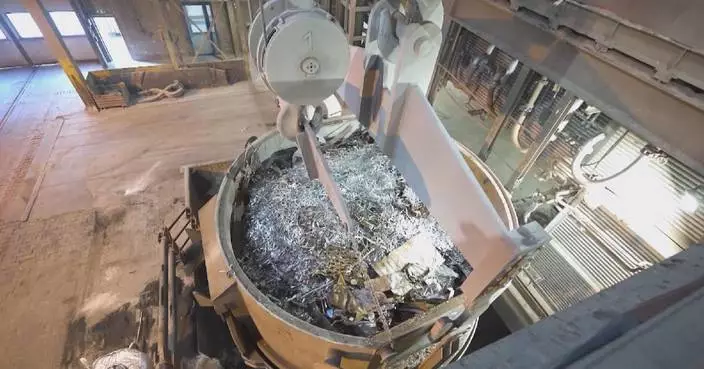Chinese startup NeuroXess has reached two significant milestones in brain-computer interface (BCI) technology, highlighting its potential to revolutionize both mobility and communication for patients.
The Shanghai-based company's high-throughput flexible BCI device successfully decoded the precise movements of one patient with brain injuries in real time and facilitated real-time Chinese speech decoding for another.
The trials, conducted at Huashan Hospital, affiliated with Fudan University, involved a 21-year-old female patient with epilepsy. She had a lesion in the motor area of her brain, which required the implantation of the advanced BCI device.
Within just 48 hours of surgery, the patient was able to play table tennis and engage in computer games entirely through thought control, without any physical movement.
After two weeks of training, she was able to navigate common smartphone applications like WeChat, the messaging and social media app, and Taobao, the e-commerce platform, as well as operate smart home devices and a wheelchair using only her mind.
Yang Qinrong, head of software and algorithms at NeuroXess, explained the science behind the technology.
"Each brainwave signal corresponds to a discharge from brain cells, and tens of thousands of such discharges combine to form distinct wave patterns. Through complex big data algorithms, we can process such signals to capture and interpret the characteristics of human thought," Yang said.
The BCI technology works by collecting brain signals, converting them into data, and forming corresponding commands. This process requires both precision and rapid response times. Data from the trials show that the synthetic motion delay for the patients was under 60 milliseconds -- close to the reaction speed of a normal person.
For language functions, the decoding delay for a single Chinese character was less than 100 milliseconds, about one-third of the normal speaking speed.
"The Chinese language system includes over 400 commonly used syllables and four tones, along with a large character library. This places higher demands on both our hardware and software. By increasing the number of electrodes from just a few to several hundred, we can effectively tackle this challenge," said Tao Hu, founder of NeuroXess.
The trials have been successful, with more than 40 intraoperative tests and 4 postoperative trials completed so far, all showing positive recovery outcomes.
NeuroXess is now planning to conduct long-term carrier trials and hopes to apply the technology within the next three years, making the technology accessible for broader use.
This breakthrough is set to pave the way for further advancements in BCI applications, offering new therapeutic possibilities for patients with speech or motor function disabilities caused by conditions like ALS, high-level paraplegia, and stroke.
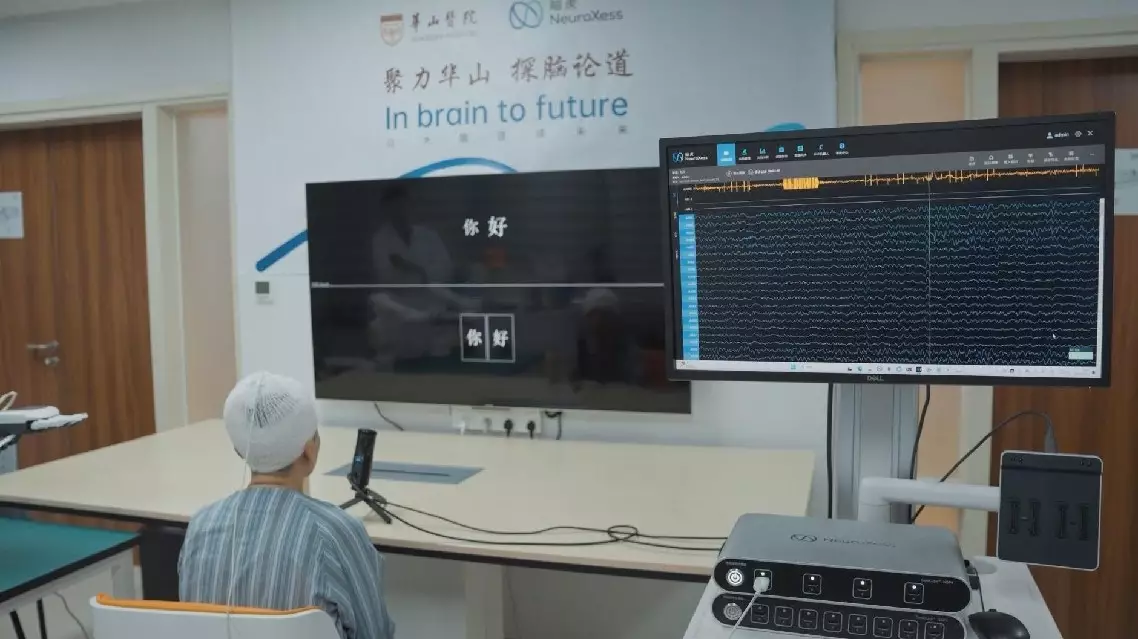
Chinese startup achieves breakthrough in brain-computer interface technology
A Russian State Duma deputy praised the robust ties between China and Russia, voicing firm confidence in the promising future of their bilateral cooperation.
Chinese President Xi Jinping arrived in Moscow on Wednesday for a state visit to Russia and to attend celebrations marking the 80th anniversary of the Victory in the Soviet Union's Great Patriotic War, at the invitation of Russian President Vladimir Putin. The visit underscores the deepening comprehensive strategic partnership of coordination for a new era between the two nations and their shared focus on historical remembrance and global cooperation.
Russian State Duma Deputy Yaroslav Yevgenyevich Nilov emphasized the strength and future potential of Russia-China relations, highlighting mutual respect, economic cooperation, and shared global responsibilities during an interview with China Global Television Network (CGTN).
Nilov praised the historical and modern-day foundation of Russia-China cooperation, attributing mutual respect and shared development goals as key pillars of the partnership.
"Russian-Chinese relations, in modern times and historically, have developed on the basis of mutual respect and recognition. Examining the history of Russia and China reveals many things in common. You only need to observe the significant growth and strengthening of both economies, particularly due to close cooperation and bilateral relations. Regular exchanges of delegations, international visits and events, the creation of favorable conditions, the opening of new markets for goods, and the expansion of joint production. All these factors contribute to the deepening of bilateral relations and cooperation. This has a positive impact on key areas such as the labor market, social development, and economic growth, benefiting both Russia and China," Nilov stated.
When asked about President Xi's call to leverage the resilience and certainty of the bilateral relationship, Nilov said that maintaining strong ties requires thoughtful diplomacy and a shared vision for global balance.
"It relates to the prudent stewardship of our bilateral partnership, our shared commitment to advancing progress, fostering development, and reinforcing cooperation with the aim of preserving global multipolarity. Fundamentally grounded in the mutual recognition and respect for each other's sovereign positions, even in instances where perspectives may diverge. We consistently endeavor to maintain a respectful dialog, reasoned discourse, and sustained engagement, both at the political and humanitarian levels. It is precisely through these channels that constructive collaboration between our nations continues to flourish: cultural exchanges are deepening, scientific advancement is being fostered, and resilient trade linkages are being created. Thus, it is evident that all necessary prerequisites exist for the further development and consolidation of relationships within the established paradigm, a framework wherein the previously mentioned objectives are not only achievable but actively pursued. Moreover, I am confident that the ongoing high-level engagements taking place in the Russian Federation, as well as those set to continue following the conclusion of the celebratory events, will serve to further solidify the reinforcement of our bilateral ties and, crucially, the enduring friendship between our nations," said Nilov.

Russian State Duma deputy hails strong Russia-China partnership



